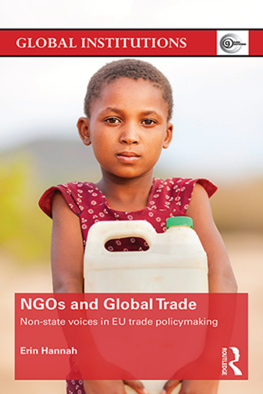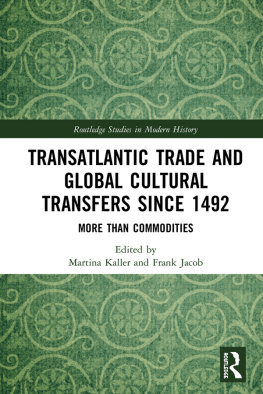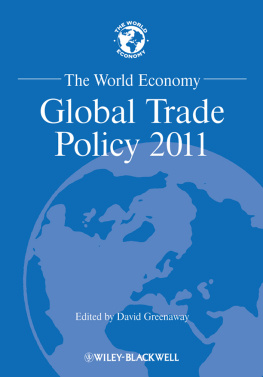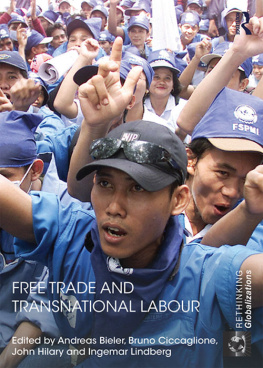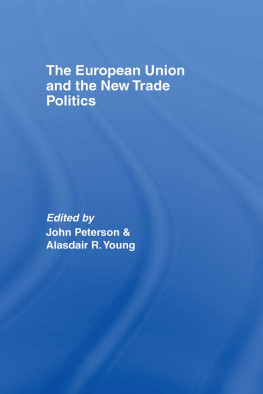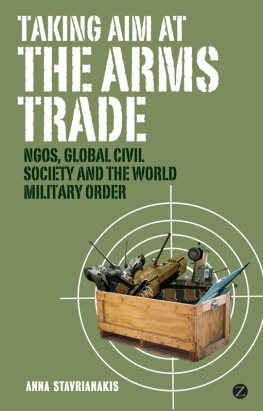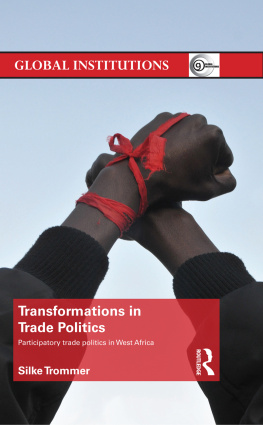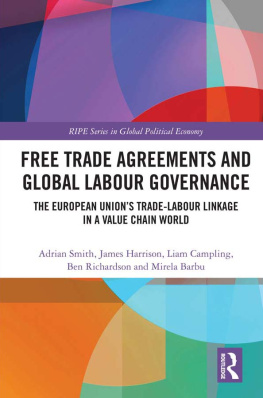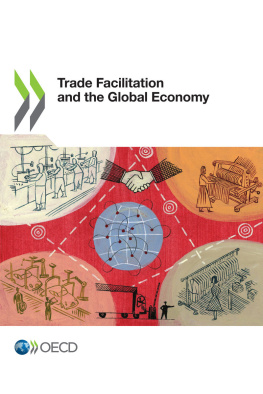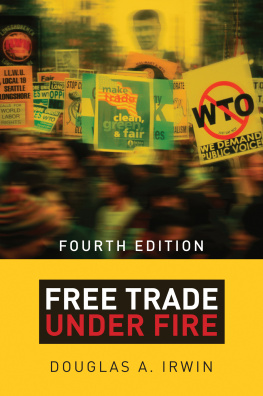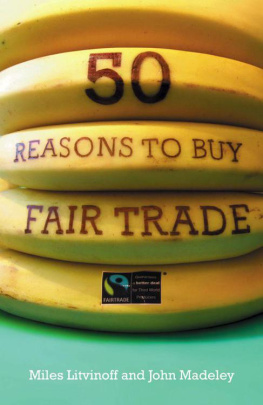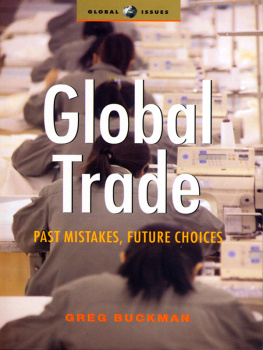This is an outstanding book, one of the clearest analyses of NGOs trying to influence the current world of multilevel governance. It is must reading for any student of the global trade system, the EU, and global governance in general.
Craig Murphy, Department of Conflict Resolution, Human Security,
and Global Governance, The University of Massachusetts
Boston, USA
Erin Hannah sheds much light on the complex role of non-governmental organizations in promoting progressive policies across integrating markets. Based on extensive research inside contemporary Europe, her accessible analysis highlights the limits of the most ambitious advocacy strategies. Pushing those limits remains possible, but success depends upon subtlety, persistence, and patience. NGO leaders, and anyone interested in their important work, should read this splendid book.
Louis W. Pauly, Professor of Political Science,
University of Toronto, Canada
This important book reaches a dismal conclusion wildly successful NGO campaigning in the EU has only marginally impacted on trade policy. But, it is not a counsel of despair potential routes out of this global epistemic logjam are identified and elaborated. Essential reading for anyone interested in understanding the contemporary limits to NGO campaigning.
David Hulme, Professor of Development Studies,
University of Manchester, UK
NGOs and Global Trade
In a deeply iniquitous world, where the gains from trade are distributed unevenly and where trade rules often militate against progressive social values, human health, and sustainable development, non-governmental organizations (NGOs) are widely touted as our best hope for redressing these conditions. As a critical voice of the poor and marginalized, many are engaged in a global struggle for democratic norms and social justice. Yet the potential for NGOs to bring about meaningful change is limited. This book examines whether improvements in participatory opportunities for progressive NGOs results in substantive and normative policy change in one of the major trading powers, the European Union (EU).
Hannah advances a constructivist account of the role of NGOs in the EUs trade policymaking process. She argues that NGOs have been instrumental in providing education, raising awareness, and giving a voice to broader societal concerns about proposed trade deals, both when they take advantage of formal participatory opportunities and when they protest from the streets and in the media. However, the book also highlights how NGO inputs are mediated by the social structure of global trade governance. Epistemesthe background knowledge, ideo-logical and normative beliefs, and shared assumptions about how the world worksdetermine who has a voice in global trade governance.
Showing how NGOs succeed only when their advocacy conforms broadly to the dominant episteme, this book will be of value to scho-lars and students with an interest in NGOs and international trade negotiations. It will also be of interest to policymakers, national trade negotiators, government departments, and the trade policy community.
Erin Hannah is Associate Professor of Political Science at Kings University College at the University of Western Ontario, Canada. She is an international political economist specializing in global governance, trade, sustainable development, poverty and inequality, global civil society, and European Union trade politics.
Global Institutions
Edited by Thomas G. Weiss
The CUNY Graduate Center, New York, USA
and Rorden Wilkinson
University of Sussex, Brighton, UK
About the series
The Global Institutions Series provides cutting-edge books about many aspects of what we know as global governance. It emerges from our shared frustrations with the state of available knowledgeelectronic and print-wise, for research and teachingin the area. The series is designed as a resource for those interested in exploring issues of international organization and global governance. And since the first volumes appeared in 2005, we have taken significant strides toward filling conceptual gaps.
The series consists of three related streams distinguished by their blue, red, and green covers. The blue volumes, comprising the majority of the books in the series, provide user-friendly and short (usually no more than 50,000 words) but authoritative guides to major global and regional organizations, as well as key issues in the global governance of security, the environment, human rights, poverty, and humanitarian action among others. The books with red covers are designed to present original research and serve as extended and more specialized treatments of issues pertinent for advancing understanding about global governance. And the volumes with green coversthe most recent departure in the seriesare comprehensive and accessible accounts of the major theoretical approaches to global governance and international organization.
The books in each of the streams are written by experts in the field, ranging from the most senior and respected authors to first-rate scho-lars at the beginning of their careers. In combination, the three com-ponents of the seriesblue, red, and greenserve as key resources for faculty, students, and practitioners alike. The works in the blue and green streams have value as core and complementary readings in courses on, among other things, international organization, global governance, international law, international relations, and international political economy; the red volumes allow further reflection and investigation in these and related areas.
The books in the series also provide a segue to the foundation volume that offers the most comprehensive textbook treatment available dealing with all the major issues, approaches, institutions, and actors in contemporary global governanceour edited work International Organization and Global Governance (2014)a volume to which many of the authors in the series have contributed essays.
Understanding global governancepast, present, and futureis far from a finished journey. The books in this series nonetheless represent significant steps toward a better way of conceiving contemporary pro-blems and issues as well as, hopefully, doing something to improve world order. We value the feedback from our readers and their role in helping shape the on-going development of the series.
A complete list of titles appears at the end of this book. The most recent titles in the series are:
NGOs and Global Trade (2016)
by Erin Hannah
Brazil as a Rising Power (2016)
edited by Kai Michael Kenkel and Philip Cunliffe
Summits and Regional Governance (2015)
edited by Gordon Mace, Jean-Philippe Thrien, Diana Tussie, and Olivier Dabne
Global Consumer Organizations (2015)
by Karsten Ronit
World Trade Organization (2nd edition, 2015)
by Bernard M. Hoekman and Petros C. Mavroidis
Women and Girls Rising (2015)
by Ellen Chesler and Terry McGovern
The North Atlantic Treaty Organization (2nd edition, 2015)
by Julian Lindley-French


